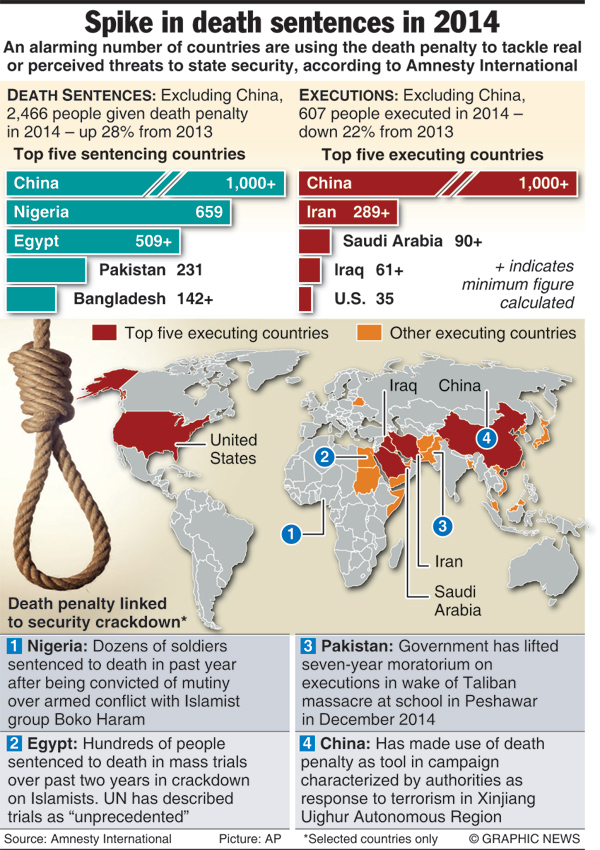News
Rule of law, not death, the solution to crime
“I take upon myself the rule of training to abstain from taking the life of living beings.”- The First Precept
My father, Mahanama Samaraweera MP, knew two people who were to be hanged for murder.
They were from Matara, his electorate. So, like everyone else in the district, he also knew something that most of the country didn’t: these two individuals were convicted and sentenced on false evidence. They were to go to the gallows; to be hanged for crimes they had not committed.
The experience of his constituents despair, and the grave injustice inherent in putting to death the innocent, may have stirred him into championing, as Deputy Minister of Justice in the S.W.R.D. Banadaranaike’s Cabinet, the abolition of the death penalty.
He was successful, to a point. When the government came to power in 1956, Cabinet on its very first sitting, decided to do away with the death penalty.
A Commission of Inquiry and two years later, my father introduced the Capital Punishment Act No. 20 in Parliament, which repealed the death sentence and replaced it with life imprisonment.
Dr. Colvin R de Silva once observed that the simple fact that the death penalty was irreversible was in itself a sufficient reason for its abolition.
Introducing the death penalty means that we, as a society, are absolutely convinced that our judges, our prosecutors, our defence and our investigators – people as prejudiced and muddled thinking as the rest of us – are infallible.
We must be convinced that they cannot make mistakes. For if anyone of them makes an error even once, and someone is wrongly sentenced to death, then their blood will be on all our hands; for it is we, as legislators and citizens, who would have permitted such injustice to occur.
In fact, it requires a certain collective arrogance as a society, perhaps even megalomania, to take such irreversible steps even when we risk being wrong.
 After all, most convictions, even with the miracles of modern science, as any criminal lawyer will tell you, are hardly open-and-shut cases.
After all, most convictions, even with the miracles of modern science, as any criminal lawyer will tell you, are hardly open-and-shut cases.
As memorably depicted in the film 12 Angry Men, there’s often a wafer thin, and sometimes invisible line, between reasonable doubt and guilt.
The law also changes over time: crimes punishable by death in the past, such as publicly disagreeing with the king, are now considered normal and valuable.
Imagine if Nelson Mandela or our own N.M. Perera had been put to death rather than imprisoned; later changes in the law would not have brought them back.
Because death, unlike the law, is absolute. While the laws may change, one cannot bring back one to life. Such uncertainty offers little comfort to judges, legislators and through them citizens testing and questioning their conscience.
The death penalty also raises the question of whether we have the authority or the right to take life in the first place. Dr. E. W. Adikaram did not vote as long as the death penalty remained on the books, saying “I shall not directly or indirectly get involved in taking the life of a fish, bird, insect or human being.”
Who are we to take the life of another, to decide that fathers and mothers, sons and daughters, aunts and uncles are to die or not die?
In fact, just as much as the suicide rate is often used as a measure of social health, one can think of a society’s approach to the death penalty as a barometer of its humanity.
For a society to calculatedly and systematically allow a human life to be taken, speaks very poorly of its commitment to the sanctity of life and the extent to which we have become brutalised by violence and war.
It could even be a case of the cobra effect, where an attempted solution to a problem actually makes the problem worse. Reintroducing the death penalty conveys the message that human life can and will be taken by other humans, instead of emphasising that every life is sacred.
This could, in the long term, increase violence and brutality in society, rather than halt it.
The death penalty, as researchers across the world have found, is applied unfairly. It is the poor who cannot afford capable lawyers; the oppressed who are discriminated against by the judges; the influential, who don’t have connections to bail them out, who will bear the brunt of this inhumane legislation.
The rich, the powerful, the connected — the drug barons, the racketeers, the corrupt — will not really have anything to fear.
In fact, the evidence of study after study, has pointed that the death penalty is not an effective deterrent. To put it simply: “there is no credible evidence that capital punishment deters murder or makes us any safer”.
This is why most countries have done away with the death penalty.
A survey of senior policemen across America, where the death penalty still prevails in some states, found that they thought the death penalty was the least effective deterrent available to them.
This view is confirmed by judicial, legal, policing and criminology experts.
Although there have been no comprehensive studies of the factors driving crime in Sri Lanka, I would contend that the politicisation of the police, the assault on the independence of the judicial system, political protection for criminals and the general culture of impunity and corruption created over many years have much more to do with the lack of deterrence than the lack of the death penalty.
Therefore, if we want to really deter criminals we need to restore and empower the judiciary and police.
We need to ensure their independence from external pressure, staff them with men and women of the highest integrity and ensure that the necessary resources are granted to ensure that justice is swift and impartial.
No doubt that our nation faces an unprecedented threat of criminality. But that problem is one too large and too grave for a morally repugnant, ineffective, potentially self-defeating and simplistic solution like re-introducing the death penalty.
It requires the replacement of jungle law with the rule of law through an effective and impartial judiciary and police force.
It also requires deeper reforms that prevent corruption, impunity and politicisation. Without careful thought and deliberation, abandoning the community of civilised and humane nations which do not take the life of their citizens would not only be folly, it would also be deeply irresponsible.
Just as a Commission of Inquiry was appointed to study the removal of the death penalty over fifty years ago, perhaps the time has come to appoint another such committee, comprising judges, police-men, lawyers, academics and even reformed convicts, to thoroughly study the issue of criminality in our society and provide us with real and lasting solutions to the problem of crime.

